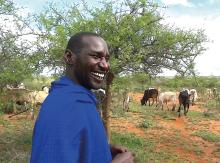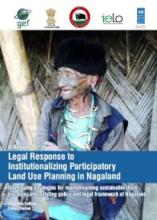Land Library
Welcome to the Land Portal Library. Explore our vast collection of open-access resources (over 74,000) including reports, journal articles, research papers, peer-reviewed publications, legal documents, videos and much more.
/ library resources
Showing items 1 through 9 of 41.This publication is based on a range of past studies on ICCAs conducted in several regions of the world in the last two decades, and, most recently, on 19 country level case studies.
This report produced by Centre for Policy Research (CPR) a comprehensive and systematic study of Supreme Court cases on land acquisition from 1950- 2016 and examined particular conflicts involving major dams, special economic zones, housing complexes and industrial projects.
This report prepared by FAO explores the challenges and opportunities represented by the complex interrelationship between forests, agriculture and sustainable development.
Indigenous Peoples and local communities hold a large share of the world’s land area under customary systems. However, there is a tremendous gap between what is held by communities in practice and what is formally recognised by governments.
The year 2016 marks 15 years since the new wave land reforms became operational in Tanzania. Despite its ambitious goals – encouraging land registration and titling, and empowering women and other vulnerable groups – the results are disillusioning.
This brief presents a review of 161 Intended Nationally Determined Contributions (INDCs) submitted on behalf of 188 countries3 for COP 21 to determine the extent to which Parties made clear commitments to strengthen or expand the tenure and natural resource management rights of
This book made an attempt to bring together various legislative protections available to the tribals communities pertaining to the land and governance in the scheduled areas and the role of different institutions to achieve the goals enshrined in the Constitution.
The report, prepared by the Indian Environment Law Offices, offers insights on mainstreaming Shifting Cultivation or Jhum through innovative interventions, such as Participatory Land Use Planning into policy, legal and institutional framework in Nagaland and help the state real




